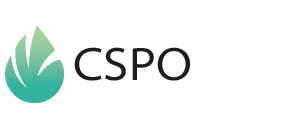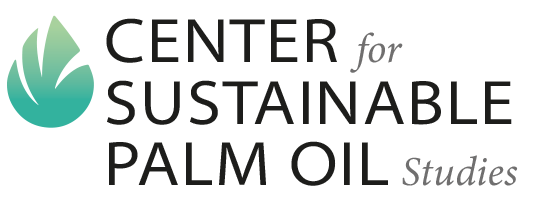
We caught up with L’Oreal’s sustainability manager for Australia, Kiera Flynn, to talk about the brand’s new sustainability agenda — L’Oreal for the Future.
Sustainability isn’t a particularly new concept for L’Oreal — its first sustainable development program was introduced to the business in 2013.
Since then the scale of global social, environmental and economic challenges has only escalated, and so has L’Oreal’s commitment to helping solve them.
The next phase of the beauty organisation’s sustainability journey is called “L’Oreal for the Future”. The campaign launched in 2020 with an agenda to take on more responsibility in reducing the company’s impact on the environment as well as looking for ways to support those struggling socially or economically.
So far the company has walked its talk and allocated $160 million to impact investing dedicated to the regeneration of global ecosystems and created an $80 million charitable endowment fund for organisations supporting highly vulnerable women.
In his introduction to the L’Oreal for the Future campaign, L’Oreal CEO Jean-Paul Agon said that while the company had already spent 10 years proving that both impact and growth is possible, he believed the business could do more.
“Over the last 10 years, we have undertaken an in-depth transformation to reduce our impact across our entire value chain. We have totally reinvented the way we design and make our products with sustainability as a fundamental requirement. However, as environmental and social concerns increase, we know that this is no longer enough,” Agon said.
“With L’Oréal for the Future, we aim for an even more radical transformation. More radical, because our commitments put L’Oréal in line with the only possible scenario for humanity: respecting planetary boundaries across the entire lifecycle of our products.”
As L’Oreal Australia’s sustainability manager, Kiera Flynn works with the global team to help drive the L’Oreal for the Future campaign forward and, from a local perspective, supports and educates retailers, consumers and employees in Australia on why sustainability matters.
We sat down with her to talk about how the company is approaching the UN’s 2030 Agenda for Sustainable Development, at the heart of which sit 17 Sustainable Development Goals (SGDs) — a framework for businesses to draw from when shaping their purpose and setting targets.
Can you explain L’Oreal for the Future in a nutshell?
It’s really the next phase of sustainable development in our business. All businesses are obviously talking about their 2030 agenda, this is ours. Sustainability has always been a big part of our business but we’re now focused on it being a key acceleration. It’s important for us to remain a market leader, an ethical company and also a viable business, which is why sustainability is really becoming embedded into our business.
You recently dedicated a day of employee training to sustainability, is that something the company does regularly?
We wanted to deliver our green-steps training, which is mandatory sustainability training for all employees. We’ve never had this in-depth style of training before but I think it’s a great development for the business. We did it because we wanted to provide our workforce with the context of the environmental, social and economic crises that [the world is] currently facing. And then, of course, we wanted them to understand the sustainability commitments that L’Oreal is working towards for 2030 and beyond. We wanted to demonstrate that sustainability for us is not just around plastic waste and water consumption, it’s also about our social responsibility and giving back to the communities we operate in, it’s about the circular economy and how we’re supporting vulnerable women.
And you invited speakers from Australia Post and Qantas, why was that?
Australia Post is a business partner of ours and has been for years but they also do a huge amount of work in the sustainability space. We invited them to talk about what they’re doing and how they’re meeting their sustainable agenda items.
Australia Post’s business partner is Qantas and so when Australia Post talks about becoming fully carbon neutral they essentially rely on Qantas to also meet that goal with them, which is a hugely ambitious target. Aus Post and Qantas co-presented and spoke about how this collaboration works for both of them, the future of e-commerce and the future of sustainable aviation, electric car fleets, carbon offsets, waste management and achieving plastic-free, which are all things we talk about in our business. I wanted to bring in external speakers to have this kind of conversation because I think it can often have better traction with our employees.
How is L’Oreal for the Future being rolled out across the business?
There are two parts to it and the first is the global execution. L’Oreal has huge dedicated teams working on its sustainable development. We have over 4,000 scientists working in Research and Development, innovation, packaging and formulas from a sustainable standpoint. We also have a tech incubator based in the US working on different innovative ideas around sustainability, which is where the water-saving showerhead Gjosa came from.
From an Australian perspective, I help oversee the sustainable development for our local business but we are guided by our HQ in Paris. In Australia, our commercial teams are working with retail organisations around how to be more sustainable with the point of sale as well as how they’re producing our products. We’re also constantly working with our retailers on how they package up our products to make sure they’re following sustainable plastic-free packaging and we work with partner organisations, like Sustainable Salons, to help our salon partners reduce their impact.
How is L’Oreal tracking its impact?
We don’t do it on our own, which is why I think it’s important for companies to work with certification schemes. Reporting isn’t mandatory at the moment. I imagine at some point that governments will start to enforce it, but at the moment there’s nothing and I think that’s a problem. L’Oreal would be in favour of mandatory reporting because it’ll help good businesses get recognised and also help traction. The Science Based Targets initiative is what we follow and they keep us to account. We have a roadmap to 2030 and we work on three-year segments and report on them every month.
How easy is it for a company like L’Oreal to be fully sustainable when beauty products are so reliant on ingredients like palm oil and PFAS
Palm oil has been an ingredient in our products for a number of years and remains an ingredient, however, our palm oil trees are grown in Malaysia and Indonesia and are majoritively owned by small scale farmers, which is something we’re passionate about. The palm oil issue is something that people have, quite rightly, been concerned about for years and the issue is deforestation. For many years we’ve made sure that our palm oil is sourced from the SG model, which complies with sustainable palm oil sourcing. Those standards have been around since 2010. None of the palm oil in our products is linked to deforestation, and that’s certified by our CDP rating.
In terms of PFAS (forever chemicals), the safety of our products is the highest priority and we ensure they are safe for humans. Since 2018, L’Oreal has been phasing out PFAS and they’ve been removed from the majority of our products with reformulation currently underway.
And from an ethical standpoint, as a company that sells in China, how do you approach China’s legal requirement to test on animals?
I want to be very clear that we do not test our products on animals, and we are for a world without animal testing, however certain health authorities may nevertheless decide to conduct animal tests themselves, as is still the case in China. The China laws do cause an issue, especially for our consumers, but we believe that by having a presence in China we can help drive change. L’Oréal is actively working alongside the Chinese authorities and scientists, and has done for over 10 years, to have alternative testing methods recognised. Years ago we created an alternative to animal testing called Episkin and have so far trained over 100 Chinese scientists from 50 different organisations on how to use non-animal testing. Since 2014, shampoo, shower gels and many make-up products in China no longer require animal testing and we’re always happy to share everything we’ve learned [and developed] because we want to see a change in the industry as a whole, not just in our company.
With such a strong focus on sustainable business, would L’Oreal ever consider becoming a B Corp?
B Corps are fantastic and certification is something that’s really important to us. The reason why certifications, like B Corp, are really important is that they provide transparency and trust for the consumer who doesn’t always know which brands or companies they can trust. We’re not a B Corp but that’s not to say we won’t [ever be], I can’t really comment on that from a group perspective, but certification is important to the business. For the last five years, we’ve had a triple-A rating from the CDP, which is based on [measuring company impact on] climate, water and forest. We are one of the only companies in the world to hold onto that rating for five years. I imagine that B Corp is something that’s on the group’s radar.
You can read more about L’Oreal for the Future here
By Nikki Stefanoff
Original Link: https://probonoaustralia.com.au/news/2021/07/the-future-of-loreal-is-sustainability


